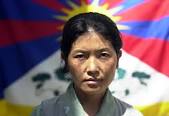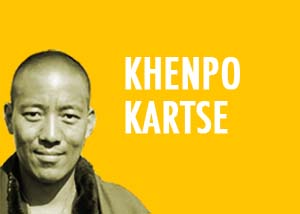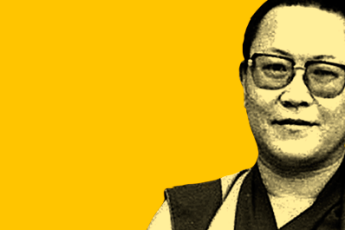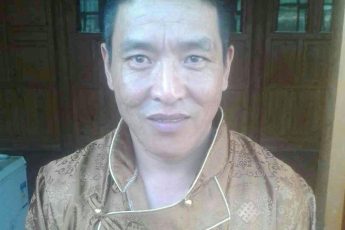Beijing Turns Away Foreign Governments’ Appeals to Free High-Profile Detainees
A report by Wall Street Journal – See original post
BEIJING—When European and Chinese diplomats met last year for their annual, often fraught discussion on human rights, the European Union side presented a list of Chinese political prisoners whose cases it thought should be reviewed, as it had done at previous meetings. But this time, the Chinese refused to accept it.
It was a blunt loss of face for the EU diplomats, people familiar with the event said, and illustrated a hardening of China’s position on human rights and the diplomacy around it.
Chinese officials have mostly stopped accepting long lists of its prisoners from foreign advocates of their release, said John Kamm, a businessman-turned-human-rights activist. Even when they do, Western diplomats say, Chinese officials often don’t provide information on the cases, much less release the prisoners. The Chinese foreign ministry didn’t immediately respond to a request for comment on its policy regarding the lists. 
Twenty-five years after the Chinese military quashed democracy protests in Beijing’s Tiananmen Square, a confident Chinese leadership, bolstered by years of robust economic growth, continues to tightly restrict civil liberties with little concern for the disdain of outsiders. The human rights diplomacy that emerged post-crackdown, human rights activists say, is effectively defunct as Beijing sees less need to negotiate with foreign governments over how it treats its own citizens.
Aside from ignoring or flat-out rejecting the lists, Beijing has also suspended many of the annual dialogues on human-rights issues that it held separately with nine governments, according to the diplomats and human-rights researchers. The ones that haven’t been called off, they say, are those with the U.S., the EU and Australia.
In April, Beijing canceled a recently agreed-upon plan with Britain to revive their dormant human-rights dialogue, after the U.K. labeled China as a “country of concern” in its annual report over a range of issues including police torture and restrictions on speech. Chinese foreign ministry spokeswoman Hua Chunying slammed Britain for “rudely slandering and criticizing China’s human-rights situation.” 
The U.K. supported a call by nongovernmental organizations to stage a moment of silence at the United Nations Human Rights Commission for Cao Shunli, an activist who died in detention in China. That also fed Beijing’s pique, diplomats said. China’s foreign ministry later criticized what it saw as “mistaken” remarks about Ms. Cao’s case. ”
She received conscientious and proactive treatment during her illness and her legal rights were ensured,” a spokesman for the ministry said.
China has so far refused to schedule this year’s rights dialogue with the U.S., which usually takes place in the summer, according to several people with knowledge of the situation. President Obama angered Beijing by meeting with the exiled Tibetan leader theDalai Lama in February, and the government’s displeasure was compounded by the recent indictments of five Chinese soldiers on charges of cybertheft.
China’s foreign ministry declined to comment on the dialogue. China’s refusal to engage on human rights has real consequences, according to diplomats, rights groups and dissidents. Former prisoners say the foreign lobbying tends to get them better treatment.
Ni Yulan, a lawyer jailed multiple times for protesting forced housing evictions, uses a wheelchair as a result of a beating she suffered while in detention. Police in China have declined to comment on Ms. Ni’s detention and the allegation she was beaten.
Inquiries from the U.S. Embassy, Ms. Ni said, led officials at the Beijing Women’s Prison to provide her with a bed while she was detained in 2009. Previously, she said, she had been forced to sleep on the ground.
“Because of their help, the conditions of my imprisonment improved greatly,” says Ms. Ni. “I’m deeply thankful for the support of foreign diplomats.” 
The practice of submitting prisoner lists grew out of the aftermath of military assault on June 3 and 4, 1989, to dislodge protesters from Tiananmen Square, and the suppression of demonstrations elsewhere. Hundreds were killed, though a precise number of dead isn’t known. More than 1,500 were imprisoned nationwide.
Western governments, under pressure from outraged citizens, were looking for ways to put human rights on the agenda when they re-engaged with Beijing. Chinese leaders were anxious to end months of being treated as a pariah, and fearful of scaring off foreign investors and derailing the overhaul of its centrally planned economy. Prisoner lists provided a solution. The first such list was submitted ahead of then Secretary of State James Baker’s visit to Beijing in 1991.
Lorne Craner, who served as an Assistant U.S. Secretary of State under George W. Bush, remembers submitting a list of more than 90 names ahead of the U.S.-China human rights dialogue in 2001. Roughly a dozen were later released, including Tibetan nun Ngawang Sangdrol, set free in 2002 after 12 years in prison for advocating Tibetan independence, and Rebiya Kadeer, an activist for the mostly Muslim Uighur minority, who was released in 2005.
“The Chinese would say the releases were unrelated to the lists and I respect that,” Mr. Craner said. “But the fact was that a fair number—I was told a record number—of people on the lists we handed over were getting out.”
As the world’s second largest economy and the biggest trading nation, China can count on economic issues factoring into relations with Western governments, many of which have continued to criticize Beijing for its curbs on free speech and its jailing of political critics, religious activists and campaigners for the rights of Tibetans and Uighurs.
Chinese leaders reject pressure on human rights “because they can, and because there’s no particular penalty for them in doing so,” said Sophie Richardson of Human Rights Watch. “It’s not, for example, that the British government is going to take something off the table that China wants in response to the human-rights dialogue being suspended.”
China’s weathering of the global financial crisis on top of Beijing’s opulent and widely praised Summer Olympics in 2008 persuaded Chinese leaders that their model was superior, according to diplomats and some analysts. Mr. Kamm, the rights advocate, said he was told that a policy decision was made in 2012 to no longer accept prisoner lists “either in the run-up to or during” human rights dialogues.
The rights dialogues, when held, have become increasingly stilted and marginalized, say the diplomats who take part in them. China’s foreign ministry has taken to holding them in far-flung locales, away from the scrutiny of activists and journalists. Last year’s EU dialogue was held in Guizhou, one of China’s poorest provinces, and the last U.S. dialogue, in July, took place in the southwestern city of Kunming.





